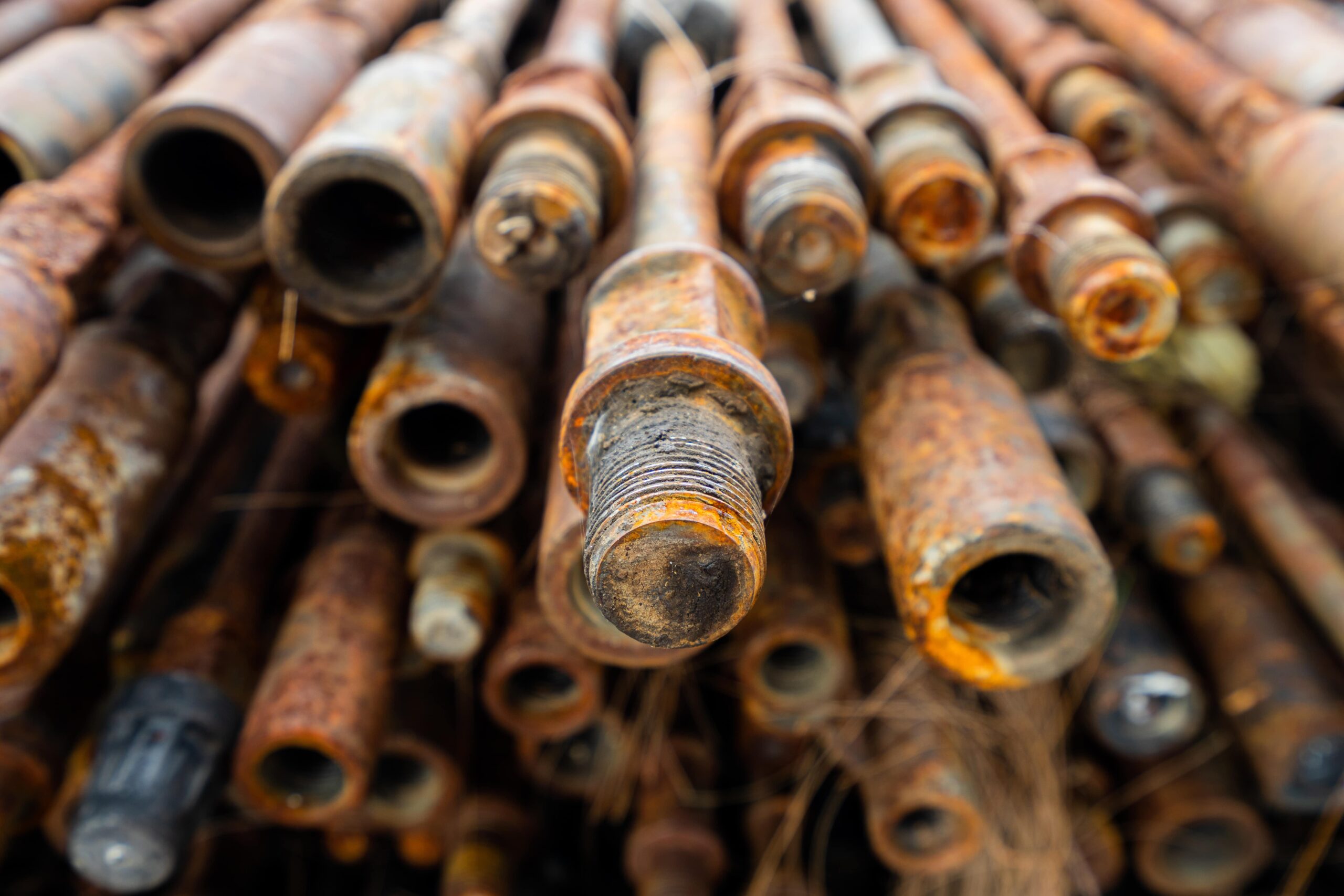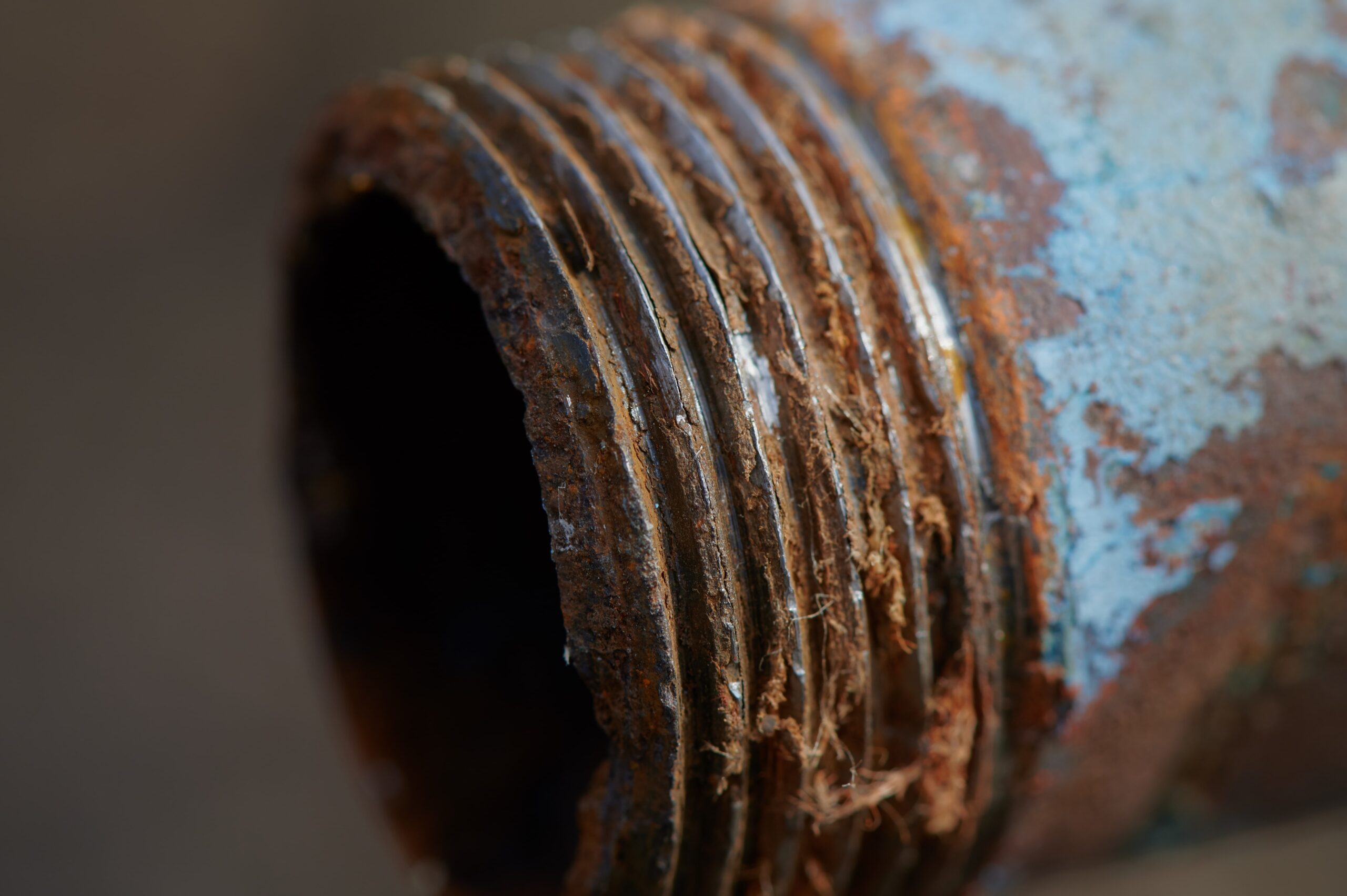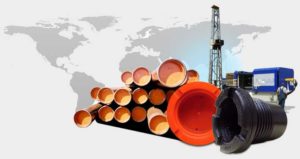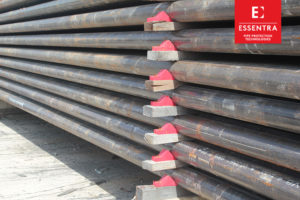Oil and gas production relies on miles of pipes that connect the wells to the surface facilities or transport fluids and gasses from one location to another. These pipes are high-strength, pressure-resistant steel that can withstand the harsh conditions of the oil and gas industry. They can suffer from various damage that can compromise their integrity and performance.
Thread damage refers to any physical or chemical deterioration of the threads at the pipes’ ends that connect them with other pipes or equipment. Threads are essential for creating a leak-proof and secure connection that can handle high pressures and temperatures. Thread damage can result in leaks, spills, pressure loss, reduced flow rate, or even pipe failure.

Causes of Thread Damage
Thread damage can have various causes, such as:
Operator error: Improper handling, installation, or removal of the pipes can cause thread damage. For example, dropping, dragging, or hitting the pipes can cause impact or abrasion damage. Misaligning, over-torquing, or under-torquing the pipes can cause cross-threading, galling, or stripping damage.
Adverse drilling conditions: Exposure to harsh environments can cause thread damage. For example, high temperatures and pressures, corrosive fluids or gases, abrasive solids, or vibration can cause erosion, corrosion, fatigue, or stress cracking.
The Impact of Thread Damage
Thread damage can have serious consequences for oil and gas production, such as:
Environmental impact
Leaks or oil or gas spills from damaged threads can contaminate the soil, water, or air. This can harm the environment and human health and incur legal liabilities and penalties.
Economic impact
Loss of oil or gas from damaged threads can reduce the production and revenue of the operation. This can also increase the costs of repair, replacement, or maintenance of the pipes.
Safety impact
Failure of oil or gas pipes due to damaged threads can cause fire or explosion hazards. This can endanger the lives and property of the workers and nearby communities.
Best Practices to Avoid Thread Damage

To prevent thread damage and its impacts on oil and gas production, it is essential to follow some best practices for pipe thread protection, such as:
Use appropriate materials and standards for threaded pipes
Choose high-quality materials compatible with the fluids and gases flowing through them. Follow the industry standards and specifications for threaded pipes, such as API 5CT1 or ISO 119602.
Inspect and test threaded pipes regularly
Check the threads for any signs of damage before and after installation. Use non-destructive testing methods such as magnetic particle inspection (MPI) or ultrasonic testing (UT) to detect any defects in the threads.
Protect threaded pipes during storage and transportation
Use protective devices such as thread protectors3, stabbing guides, pipe chocks, or lifting bails to prevent thread damage from impact, abrasion, corrosion, or contamination.
Handle threaded pipes carefully and correctly
Use proper equipment, tools, and techniques to load, unload, transport, connect, or disconnect threaded pipes. Follow the manufacturer’s instructions and industry guidelines for handling specific types of threads.
MSI Pipe Protection Technologies: Your Trusted Partner

By following these best practices, you can ensure that your threaded pipes are protected from damage and perform reliably in your oil and gas production operations. Threaded pipes are vital components of your operation that deserve your attention and care.
If you need high-quality thread protectors or other pipe protection products for your oil and gas production operations, contact MSI Pipe Protection Technologies today. MSI is a global leader in pipe protection, oilfield products, tubular handling equipment, and other precision pipe products for the petroleum industry.
MSI provides customized solutions that meet or exceed the industry standards and specifications for threaded pipes. MSI can deliver your products anywhere, with fast and reliable service. Protect your pipes with MSI.




